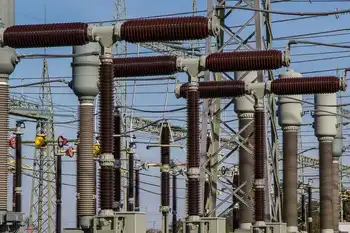AECL signs equipment, consulting deal with TEPCO
By Industrial Info Resources
Protective Relay Training - Basic
Our customized live online or in‑person group training can be delivered to your staff at your location.

- Live Online
- 12 hours Instructor-led
- Group Training Available
The agreement follows a collaborative research and development effort by both companies. This is AECL's first contract in Japan.
The cooperative initiative was initiated in 2004 and was performed by TEPCO, in association with the Fluid Seal Technology division of Chalk River Labs Limited, a subsidiary of AECL. In 2006, the research effort, which led to the development of pump seals that were designed by AECL specifically for Japanese Boiling Water Reactors (BWR), was validated and tested.
TEPCO operates 15 of Japan's 32 functional BWRs. Pump seals are critical components in a power plant, as they assist in reducing operating costs and strengthening the reliability of the power generating facilities. A power plant will cease to operate if the pump seals malfunction.
AECL's pumps seals are used in all Canadian Deuterium Uranium (CANDU) reactors in Canada and BWR's in Mexico, the United States and Switzerland.
Project officials have said that AECL completed its first pump seal installation for TEPCO in early November. This was followed by a plant commissioning on November 28, and the facility achieved full-power production on December 3. The successful completion of the research and implementation activities showcases AECL's capabilities to serve customers in the nuclear and other energy sectors.
TEPCO is one of Tokyo's biggest energy utilities. It operates 17 nuclear power plants in Japan, with seven units in Niigata Kashiwazaki Kariwa and the rest in the Fukushima prefecture. The plants contribute a total of about 17,308 MW and account for 40% of TEPCO's total energy generation.
ACEL is a full-spectrum energy equipment and services company. Established in 1952, the company's CANDU reactor technology is considered to be one of the top-performing reactors in the world. Power generated from CANDU reactors account for 50% of Ontario's electricity demand.
In a related development, in its effort to restructure AECL, the Canadian government invited bids for the company's nuclear division. Industry experts have observed that the winning bidder will face the daunting challenge of pulling out the division from taxpayers' subsidies and make it a sustainable and profitable venture.
As of March 31, 2009, despite government funds of $229.3 million, the CANDU business division faced losses of $314.9 million. The government has indicated that it is exploring various investment options and is open to a 100% takeover. According to media reports, several international energy firms including Westinghouse Electric LLC, SNC-Lavalin Group, Areva S.A. and Bruce Power are expected to submit bids.
The Organization of Candu Industries has welcomed the move, stating that the takeover will not only strengthen Canada's nuclear power industry, but also will give it a much needed economic boost. There are 32 CANDU reactors operating globally, of which 20 are located in Canada.
CANDU is based on heavy water technology, which is used to cool the reactor core. Most popular, new-age technologies use light-water technology. Industry experts have observed that the proposed sell-off could mean an end to CANDU technology.











